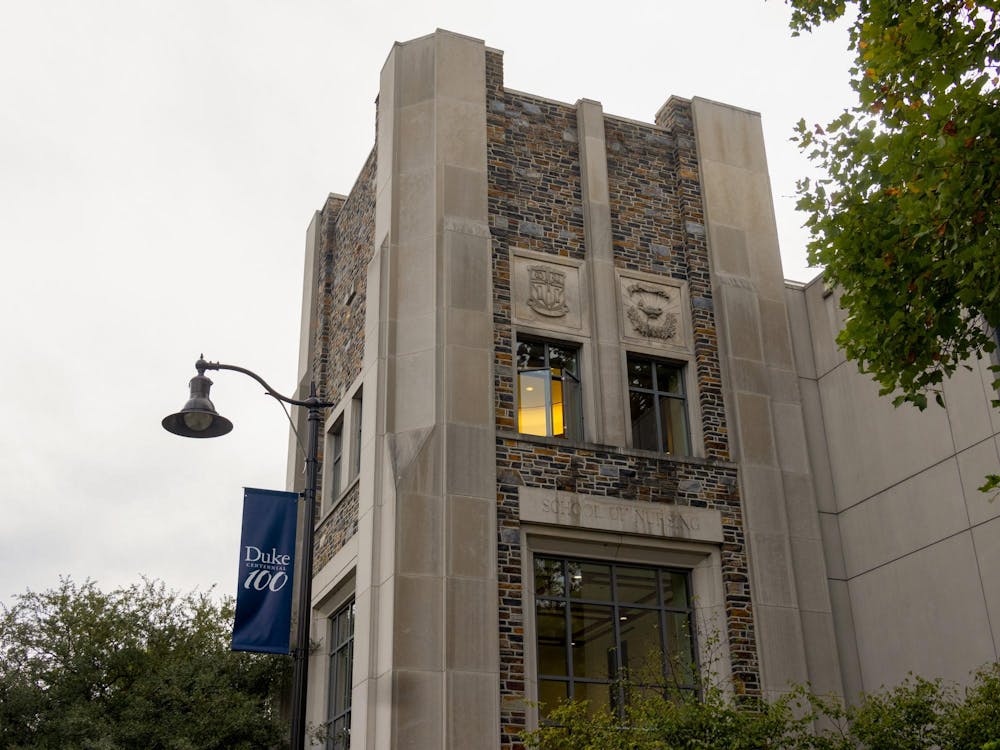Duke’s School of Nursing recently created a new program to allow individuals without an undergraduate background in the field to obtain a master’s in nursing (MN).
The new Master’s Entry to the Practice of Nursing program is a 16-month pre-licensure program that will prepare students to successfully take the National Council Licensure Examination for registered nurses. The program is one of only two in North Carolina that allows individuals without a bachelor's degree in nursing to receive an MN.
According to Stephanie Gedzyk-Nieman, assistant clinical professor and assistant dean of pre-licensure programs in the School of Nursing, the MEPN program serves students who “want an accelerated pathway to the profession of nursing … in recognition of the work and the knowledge and the skills that they’re really bringing with their already [non-nursing] bachelor’s degree and life experience and work experience.”
The 63-credit program occurs over four continuous semesters, where students will obtain over 700 hours of clinical experience and the opportunity to take two electives, according to Gedzyk-Nieman.
“We feel it's important for our learners to be able to have the opportunity to explore other topics that they're passionate about and might want to pursue later on post their MN degree,” she said.
The MEPN program was founded in response to a demand for more opportunities for those who want to become registered nurses but do not want to obtain a separate undergraduate degree just for nursing, according to Anne Derouin, clinical professor and vice dean for academic affairs in the School of Nursing.
Previously, the only pre-licensure program offered by the School of Nursing was an Accelerated Bachelor of Science in Nursing. But after administrators examined the data around MEPN programs at other institutions, they found that qualified applicants were more interested in an MEPN program over an ABSN degree.
“It was extraordinarily appealing to them because it felt like they were moving to the next level of education,” Derouin said. “... There was more preparation with the additional clinical hours that we've added, more leadership skills, more business savvy in terms of understanding how systems work.”
The MEPN program is slated to replace the existing ABSN, with the final cohort of ABSN students beginning their studies in spring 2025 and graduating in spring 2026.
Beyond attracting more applicants, the new MEPN program possesses other advantages.
For one, as a graduate program, students will have access to graduate federal financial aid opportunities not available to those seeking a second undergraduate degree in nursing. Those individuals may have maximized the undergraduate financial aid or scholarship programs they have access to.
“This is a whole new world for our applicants and our students that now they can tap into these other amazing opportunities for aid, for scholarship and for loans to make that dream a reality of coming to the School of Nursing here at Duke,” Gedzyk-Nieman said.
Moreover, a master’s degree helps students transition faster into clinical practice, a benefit of newly heightened significance given the current nursing shortages experienced across the United States. It also sets up the transition to postgraduate programs, where some students seek to become advanced practice nurses, nurse educators and nurse informaticists.
“They're going to enter practice at a higher level, and they're going to accelerate in their career quicker, because they have an advanced degree and they have these advanced skills that we've provided,” Derouin said.
The new program also aligns with the revised standards for competency-based nursing education laid out by the American Association of Colleges of Nursing, which emphasize readiness for real-world clinical scenarios.
“We hold patients' lives in our hands when we walk out across that stage,” Gedzyk-Nieman said.
Applications for the new MEPN program opened Oct. 1, and the inaugural cohort of accepted students will begin their studies in fall 2025.
Get The Chronicle straight to your inbox
Sign up for our weekly newsletter. Cancel at any time.
Dylan Halper is a Trinity first-year and a staff reporter for the news department.

